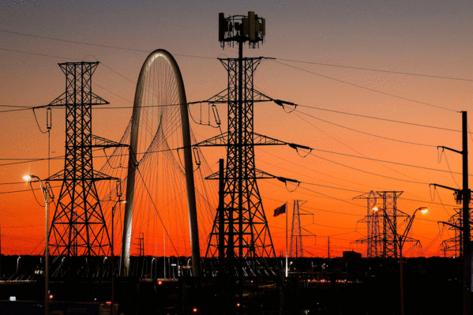Commentary: Why the Lone Star State could go dark, and how to prevent it
Published in Op Eds
Electricity demand in the state of Texas is forecast to soar in the years ahead, driven by the boom in manufacturing, new data centers, and cryptocurrency mining.
The Texas grid’s ability to meet this growth without blackouts depends on reliable fossil fuel energy. Unfortunately, due to distorting green energy subsidies, the Lone Star State has seen a rapid buildout of renewable wind and solar that is crowding out resilient energy sources like coal, natural gas, and nuclear.
A bill before the Texas Legislature—which adjourns on June 2 until 2027—could shore up reliability on the increasingly weather-dependent grid. Earlier this month, the Senate passed SB 715, authored by State Sen. Kevin Sparks, R-31, that would require all intermittent resources like wind and solar to secure firm backup power.
Unfortunately, the bill was severely watered down. Intense lobbying pressures from the renewable energy developers and the Texas Oil and Gas Association secured an amendment that will exempt from compliance generators bound by existing power purchase agreements, which comprises the vast majority of the current fleet of generators.
This carve-out leaves Texans increasingly vulnerable to future potential blackouts as wind and solar flood the state’s grid while resilient capacity falls behind. Texans need the bill to become law without the amendment.
Over the past two decades in Texas, about 70% of newly installed capacity – 68 gigawatts (GW) – has been wind and solar. On the other hand, natural gas plants added 21 GW and limited-duration battery storage increased by 10 GW; meanwhile, coal capacity declined by 2 GW.
By the end of the decade, roughly 60% of planned additions will be intermittent solar (43 GW) and wind (7 GW). Although batteries will also expand by 28 GW to serve as a critical source of backup, their output typically lasts for only a few hours – insufficient for prolonged calm, cloudy periods when renewables output plunges.
Meanwhile, only 4 GW of natural gas capacity is scheduled to come online, 2 GW of coal plants will retire, and no nuclear projects are planned. This bleak outlook is compounded by the fact that 42% of thermal plants are more than 30 years old, soon to retire.
This imbalance in capacity growth, which heightens Texans’ reliance on intermittent resources and limited-duration battery storage, “increases the risk profile of the grid, especially during periods when energy storage resources are recharging, intermittent resources are not available, and during extreme weather events,” according to a report by the state’s grid operator.
In response to this looming reliability crisis, the Texas Legislature passed a law in 2023 that requires new intermittent generators operating in 2027 or later to secure resilient backup capacity, such as battery storage or natural gas plants, through contracts or installations. The requirement partially offsets the renewable subsidy advantage and encourages investment in reliable power sources that the same subsidies have artificially crowded out.
However, this law currently applies only to energy resources that connect to the grid starting 2027. SB 715 and its companion, HB 3356, which would expand the reliability requirement to existing generators, should be passed in their original form, without exceptions.
While Texas legislators work to strengthen grid reliability, Washington can bolster those efforts by repealing the Inflation Reduction Act subsidies, especially the clean electricity investment tax credit and the clean electricity production tax credit, through the budget reconciliation process. Elimination of these subsidies would end the distortions that have exacerbated Texas’s power crisis in the first place.
American energy dominance – central to the Trump administration’s agenda – does not come from subsidies, but from competition and the elimination of burdensome regulatory barriers. Energy abundance does not result from pouring billions of taxpayer dollars into intermittent resources, which leave our electricity supplies dependent on weather conditions.
With the state legislature about to adjourn, the clock is ticking for Texans. The time to bring power reliability is now.
____
Austin Gae is a researcher in the Center for Energy, Climate, and Environment at The Heritage Foundation.
_____
©2025 Tribune Content Agency, LLC.

























































Comments